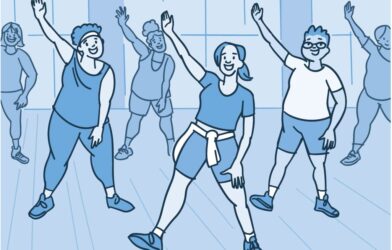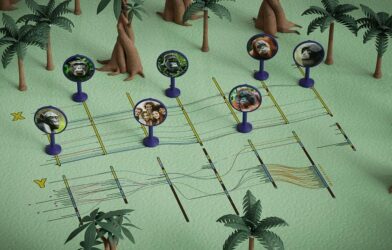Eating healthy isn’t always easy. Expert-recommended diets often emphasize fresh, whole foods and home-cooked meals. But that can be expensive and time-consuming. Highly processed foods are often cheap and convenient. But they also tend to be high in calories, added sugar, saturated fat, and salt, and low in fiber.
Scientists are starting to learn that highly processed foods can have certain effects on your body that may make sticking to your healthy eating goals even harder. Eating too much of them may lead to weight gain and increase your risk for certain diseases, like cancer, diabetes, and obesity.
What Are Ultra-Processed Foods?
Most foods that we eat are processed to some extent—they’re modified from how they exist in nature. Chopping, grinding, drying, cooking, and freezing are all forms of food processing. Some forms of processing are good for your health. For example, cooking meat and pasteurizing milk can help prevent foodborne diseases. But if your food is processed too much, it may be harmful to your health.
Ultra-processed foods are those that have undergone the greatest level of processing. As a general rule, ultra-processed foods are those that have been made using additives, ingredients that you wouldn’t likely have in your home kitchen. These include things like hydrogenated oils, isolated proteins, and high-fructose corn syrup. Ultra-processed foods are often made using industrial processes that you can’t easily do at home.
“If you’re standing in the grocery store, in one of the middle aisles, and the thing that you’re holding is in a crinkly package, you’re probably holding an ultra-processed food,” says Dr. Alexandra DiFeliceantonio, a neuroscientist who studies health behaviors at Virginia Tech.
Ultra-processed foods are designed to be low cost and have long shelf lives. They’re tasty, convenient, and ready to eat. Examples include carbonated soft drinks, chips, chicken nuggets, and sausages. Having too much of these in your diet may result in overeating and can be harmful to your health.
Understanding Overeating
It’s difficult for scientists to study exactly how ultra-processed foods affect overeating. That requires carefully controlling people’s diets for weeks at a time.
But NIH metabolism researcher Dr. Kevin Hall has done just that. In a recent study, he compared calorie intake and weight gain in participants who ate a highly processed diet with those who ate a minimally processed diet. Study participants stayed at NIH’s Metabolic Clinical Research Unit for four weeks, spending two weeks on each diet. Both diets offered the same amount of calories, sugar, fiber, fat, sodium, and carbohydrates on a daily basis. Participants could eat as much or as little as they wanted.
When people were on the diet with ultra-processed foods, they ate about 500 more calories each day. They also gained about 2 pounds on average. In contrast, when they were on the less-processed diet, they lost about 2 pounds.
The differences weren’t due to different nutrients in the overall diet. And, the participants rated the meals on both diets as equally pleasant. So why did people eat more of the diet filled with ultra-processed foods? The researchers aren’t sure.
Hall’s team is now looking at what else might be in ultra-processed foods that leads people to overeat. The brain may react differently to those foods, he says, or the gut may send out different signals after they’re digested.
The tendency for ultra-processed foods to lead to overeating may partly explain the recent rise in obesity. “But we rely on ultra-processed foods too much to get rid of them,” Hall says. “They’re tasty, they’re convenient, and it doesn’t take much time or effort or skill to prepare them.”
Hall hopes that a better understanding of what’s causing increased calorie consumption can help guide how such foods are made, or which ones people choose to eat.
“If we had ways to target problematic foods by understanding how they cause overeating, that might help manufacturers reformulate those foods so that they no longer cause problems,” says Hall. “Or it might help policymakers come up with ways to regulate potentially problematic foods.”
Changing the Brain
One way that ultra-processed foods might lead to overeating is by altering the brain. DiFeliceantonio’s team is using MRI scans to see how ultra-processed foods affect the brain’s reward system. These are the parts of the brain that are activated by pleasure and drive us to seek it out. DiFeliceantonio is studying whether a diet high in ultra-processed foods affect this system, and if the changes lead to people eating more when they’re not hungry.
If consuming ultra-processed foods and drinks might make you want more, does that mean you can get addicted to them? Right now, it’s not clear whether ultra-processed foods are addictive. But some studies suggest they might be.
“These ultra-processed, highly rewarding foods have way more in common with a cigarette than they do with an apple or an orange or black beans,” says Dr. Ashley Gearhardt, a clinical psychologist who studies overeating behaviors at the University of Michigan. “Some of the same brain circuitry turns on when we’re craving drugs as when we’re craving these ultra-processed foods.”
Gearhardt says that eating ultra-processed foods may lead to a compulsive habit. This means you have difficulty cutting back even when you want to. This is similar to what happens with addictive substances.
Addictive substances can also cause withdrawal symptoms when you stop taking them. Symptoms can include irritability, agitation, depression, and strong cravings for the substance. Gearhardt and others are studying whether cutting back on ultra-processed foods can cause similar withdrawal symptoms. This research may help explain why eating healthier can be harder for some people.
“Right now, we tell people they should feel better if they’re eating healthier,” Gearhardt says. “But we hear a lot of people say: ‘When I start to eat healthier, I feel so irritable and agitated. My cravings are so strong that I don’t feel better. I feel worse.’”
If we recognize that these symptoms can occur, we could give people strategies to manage them, says Gearhardt. That might make it easier for people to change their eating habits. If you’re looking for ways to start eating healthier, see the Wise Choices Box for tips.













